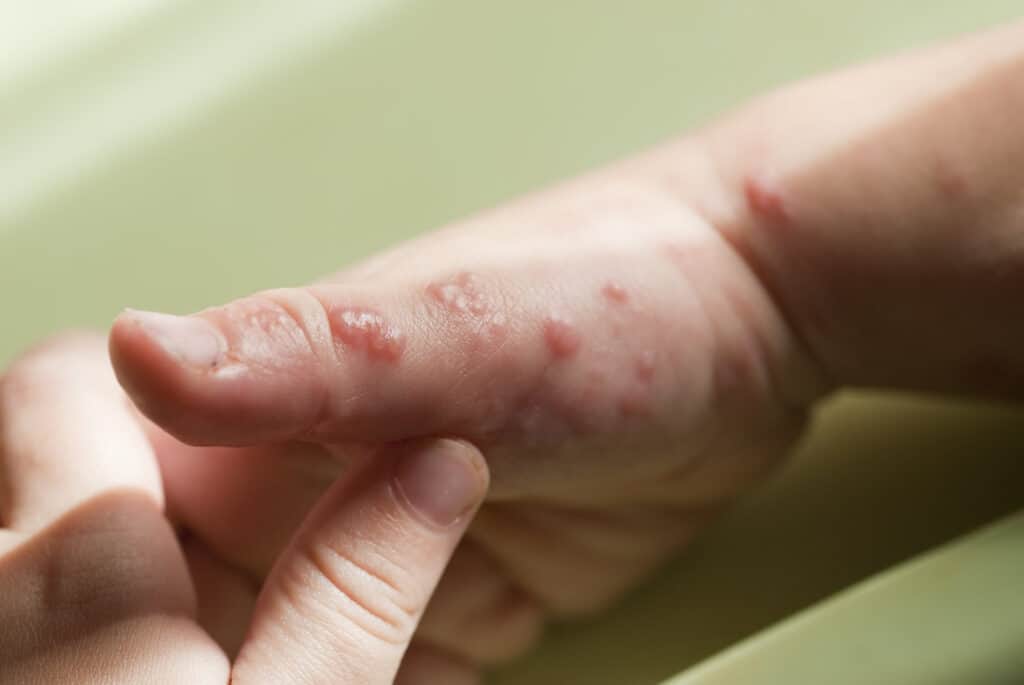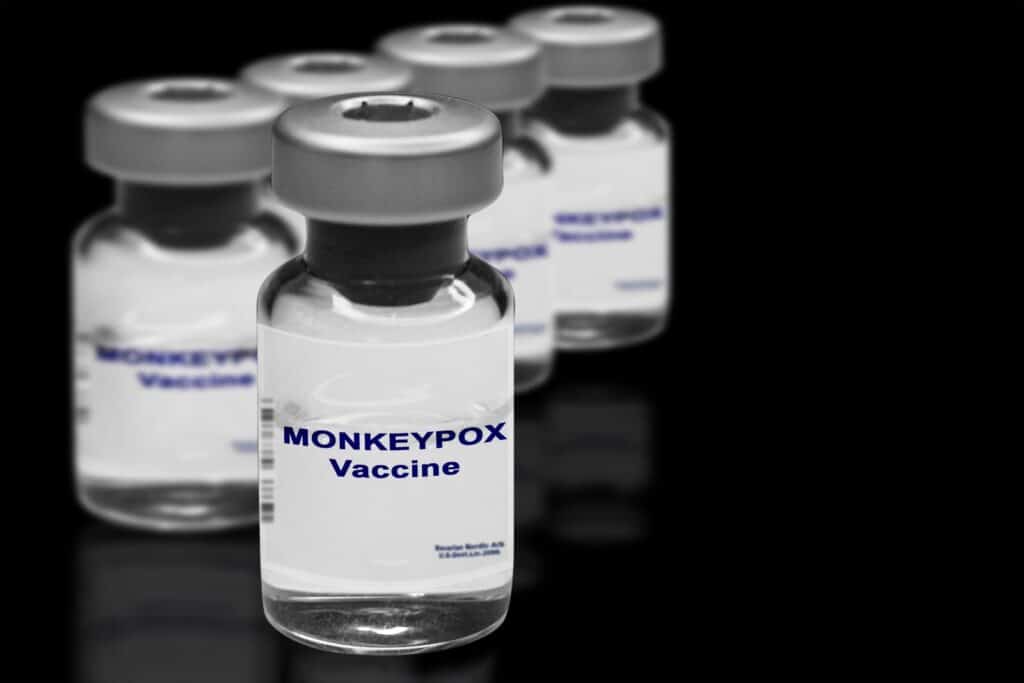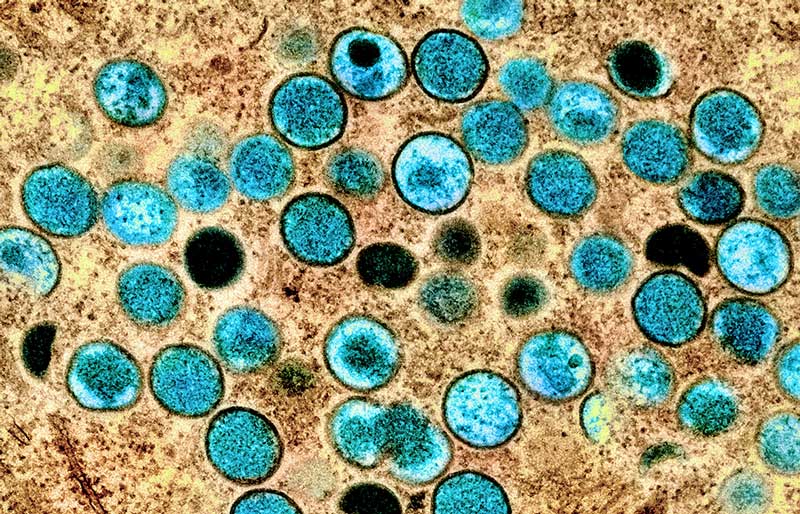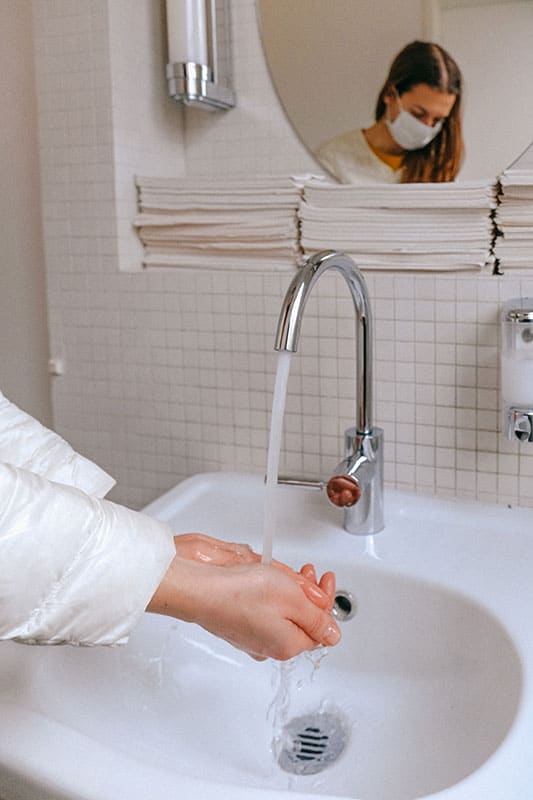Monkeypox is an infection that has been around for many years. In May 2022, a new outbreak was reported when new cases were found in the United Kingdom.
Even though Monkeypox is an endemic disease in many countries in Central and West Africa, like Nigeria, this is the first time it has spread widely around the world, including countries in Europe, South and North America, Asia, and Oceania.
In this blog, we will explain everything you have to know about the monkeypox virus.
What Is Monkeypox?
Monkeypox is an infection caused by the monkeypox virus that includes symptoms like fever, a painful rash, and other flu-like symptoms. It was originally discovered in monkeys, where the name comes from, and it was initially transmitted from animals to humans either through bites, scratches, the preparation of the animal meat, or by contact with an infected animal’s bodily fluids.
Health workers are concerned about the monkeypox virus because of the sudden increase in cases. But most people who get monkeypox will not get seriously ill or die.
What Are The Symptoms Of Monkeypox?
Symptoms usually start between 5 and 13 days after a person is infected with the virus. Some people have a few days of feeling sick, similar to the flu. Monkeypox symptoms might include fever, headache, sore throat, feeling very tired, muscle aches, and swollen lymph nodes. Then, a few days after these symptoms start, a rash appears.
These are some of the properties of the characteristic rash in human monkeypox infection:
- The rash looks like blisters, starting in small spots and then spreading through the body.
- In 2022, people noticed the rash appeared in the genital and anal area first.
- The rash can spread to the face, hands, feet, and inside of mouth.
- Bumps swell with liquid, then burst open. After that, they dry up and turn into scabs, which then fall off.
- It may hurt at first, but it shouldn’t last long. Once the scabs form, they should itch less.
For some people, the rash is the first or only symptom they have, and they do not know they are sick until it appears which depends on the person’s immune system. The rash usually lasts for about 2 to 3 weeks.

How Does Monkeypox Spread?
In the past, the most common way for the monkeypox virus to spread was from an infected animal to a person. This could happen from touching the animal’s body fluids or through a bite or scratch, as it was seen in many countries in Central Africa and West Africa.
During the current monkeypox outbreak, health workers have been noticing a human-to-human transmission, which can happen with:
- Skin contact with an infected person’s skin lesion, rash, scabs, or body fluids – This is the main way the infection is spreading during the 2022 outbreak, in many cases through sexual contact. Different health departments and experts are still studying whether the infection can also spread through semen or vaginal fluids.
- Contact with something an infected person has touched – If fluids from someone’s skin get on clothes, bedding, or sexual devices, it is possible for them to pass on infections to others who come into contact with these things.
- Respiratory droplet transmission – The infection can be transmitted by respiratory droplets when people are close together for a long period of time, for instance kissing or hugging.
It is also possible for a pregnant person to pass the human infection to their baby.
People who get monkeypox usually become sick within two weeks after exposure. However, experts don’t know whether people are contagious before they develop symptoms.
Another thing to notice is that, even though monkeypox was declared a public health emergency in the US and it’s a contagious disease, is not as contagious as the virus that causes COVID-19. It’s unlikely to get the infection unless you have direct contact with people infected face-to-face, through their active rashes, or sexual contact.
Who Is At Risk For Monkeypox?
Monkeypox can be contracted by anyone who was in close contact with somebody infected with the virus. Even when there have been many cases where men who have sexual intercourse with other men have been infected with the disease, monkeypox is not determined by gender identity or sexual orientation Anyone can get monkeypox.
What Should I Do If I Have Symptoms?
If you have any symptoms of the monkeypox virus infection, call your doctor or nurse or the health worker of your trust. They will ask you questions and schedule an exam. If possible, avoid close contact or sex with others until you have been seen by a doctor or nurse to avoid sexual transmission of the infection.
What Should I Do If I think I Was Exposed?
If you had close contact with someone who had the monkeypox virus infection, you should also tell your trusted health worker, even if you don’t have any of the initial symptoms. They can tell you what to do next and provide you with the correct medical care.
If you were exposed to monkeypox, you will need to watch out for symptoms for 21 consecutive calendar dates. You should then contact your doctor or nurse if any of these symptoms occur: high temperature, swollen lymph nodes, skin rash, or any kind of cutaneous lesion.
In some cases, experts recommend monkeypox vaccination in addition to monitoring. People who might benefit from the monkeypox vaccine include those who:
- We’re exposed to the virus – If you’ve been exposed to monkeypox within the last 10 days, your health care provider may recommend that you receive the vaccination. It’s up to you whether you want to be vaccinated.
- If you’re at risk of contracting monkeypox, vaccination may be an option for you. For instance, your risk is higher when you had a sexual partner who later found out he/she has been infected with monkeypox. Also, your risk is higher in an environment where there are lots of cases of monkeypox.
The goal of vaccination is to control the current outbreak. Your doctor, nurse, or local public health office can talk to you about the vaccine and your options.

Is There A Test For Monkeypox?
Yes, there is a test for monkeypox.
If your doctor or nurse thinks you might have monkeypox or symptoms consistent with the infection, they will use a swab to take a fluid sample from your cutaneous lesions and send it to a laboratory for analysis. Sometimes, they may even do blood tests, too.
How Is Monkeypox Treated?
Most people with monkeypox will not get seriously ill, and will be able to stay home while they get better. This usually takes a few weeks.
In some cases, doctors might recommend treatment with antiviral medication by oral intake.
How Can I Avoid Spreading Monkeypox To Others?
If you are a person with the monkeypox virus, there are things you can do to lower the risk of spreading the infection to other people.
The best way to avoid spreading the infection to others is to self-isolate and avoid human contact.
- It’s important to stay away from other people as often as possible, even the ones you live with.
- Continue to self-isolate until your rash has fully healed and you don’t have broken skin. It means the scabs have come off and new skin has grown.
To protect others, you can also:
- Wash any clothing, bedding, or other items that have touched your cutaneous lesions. This also means avoiding human contact with these items, and if it’s needed, they should wear globes.
- Wash your hands frequently. Other members of your household should also wash their own hands frequently.
- If you’re going to be around others, cover any spots where you have a rash, and use a face mask.
How Can I Avoid Being Exposed To Monkeypox?
Due to its virological characteristics, the best way to prevent monkeypox is to avoid close contact with anyone who might have it.
To lower your risk of being exposed:
- If someone who lives with you has monkeypox, they should isolate themselves from you for at least 10 days after the first symptoms appear.
- Avoid close contact with anyone who has symptoms of monkeypox.
- If a partner has been exposed to monkeypox, they must not engage in sexual activity for at least three weeks after the rash appears. Anal, oral, or vaginal intercourse is unsafe during this time period. Phone sex is an acceptable way to be intimate without physical touch.
- Condoms may not be able to completely prevent the transmission of monkeypox, but they could help protect against it. However, there are several different methods by which monkeypox spreads, so using them every time you have sex isn’t likely to stop its transmission.
Remember that monkeypox is a public health issue in many nations like the United Kingdom, and the US as was declared by the federal government. We need to be aware, protect ourselves and our loved ones, and not succumb to fear.



Recent Comments